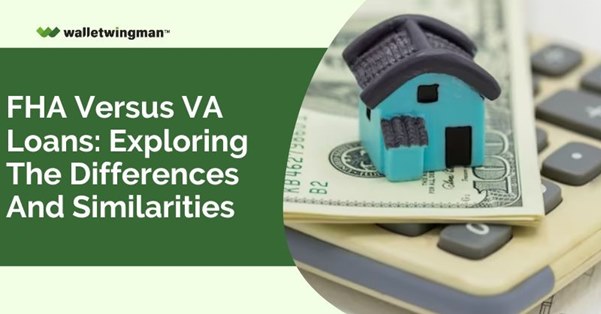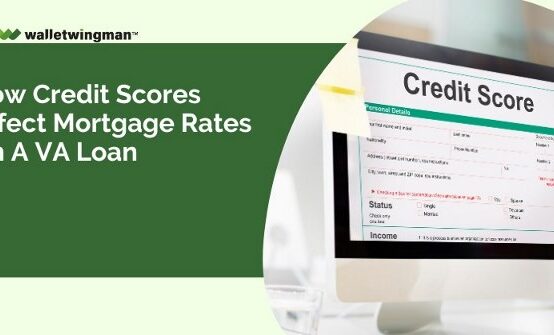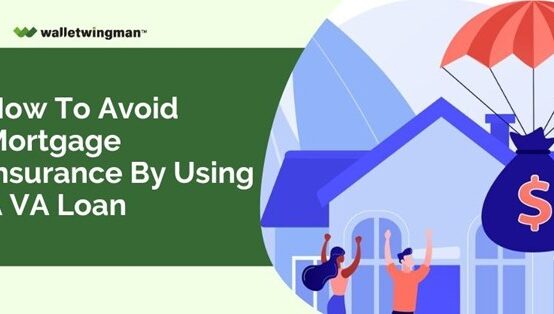Home buyers who are thinking about using the VA loan program often consider FHA loans as well. After all, both are government-backed mortgage programs with flexible qualification criteria. So, it’s only natural to explore your options and look at both FHA and VA loans.
But which one is right for you? What are the similarities between FHA and VA loans? And what are their key differences?
The main differences between these two types of loans have to do with down payments, mortgage insurance, and general eligibility. We will explore all of these differences in detail throughout the rest of this article.
FHA Loans: A Low Down Payment Mortgage Option
FHA stands for the Federal Housing Administration. This is the federal agency that manages the FHA loan program. They fall under the Department of Housing and Urban Development, or HUD.
This is one type of government-backed mortgage loan. The loan itself comes from a mortgage lender in the private sector, as with other types of home loan options. The difference here is that the federal government insures the lender against losses relating to borrower default.
Because of this insurance, lenders can offer more flexible qualification criteria for borrowers who use FHA loans. We will talk more about those criteria in a moment.
Different Types of FHA Loans
There are several different types of FHA loans that you can avail of; these types include:
- FHA 203(k) loans: These FHA home loans are rehabilitation loans designed to assist you fund the maintenance and renovation of a single-family house.
- Home Equity Conversion Mortgage (HECM): This FHA program is designed for seniors aged 62 and above, and it functions as a reverse mortgage. It permits qualifying homeowners to withdraw part of the equity they’ve invested in their house.
- FHA Energy Efficient Mortgage (EEM): These FHA loans for mobile homes allow homebuyers to fund energy-efficient home upgrades via their FHA loan.
VA Loans: A Program for Military Members and Veterans
A VA loan is a type of mortgage loan which is issued by the Department of Veterans Affairs (VA) in the United States. This program is designed to help eligible veterans, service members, and their families purchase a home. VA loans offer numerous benefits, including the ability to purchase a home with no down payment whatsoever.
Different Types of VA Loans
Like FHA loans, VA loans also have different types of loan programs, some of these include:
- Purchase Loans: These allow eligible individuals to purchase a property at reasonable interest rates with little or no down payment and little or no private mortgage insurance.
- Cash Out Refinance Loans: This loan program allows you to withdraw money from your home equity to pay off debt, pay for education, or make home upgrades.
- Interest Rate Reduction Refinance Loans: Also known as Streamline Refinance Loans, they can assist veterans in achieving cheaper interest by refinancing their existing VA loans.
- Native American Direct Loans: These programs differ from VA conventional loans and help qualifying Native American veterans finance houses on Federal Trust property.
- Adapted Housing Grants: This program assists veterans with service-connected impairments in purchasing, building, or modifying a house that is accessible to them.
The Similarities Between Them
We covered some of the similarities between FHA and VA loans already by defining these two mortgage programs. Here’s a closer look at those and other similarities that can help you choose between FHA or VA loans:
1. Government Backing
FHA and VA loans both receive some form of government insurance or guarantee that protects the mortgage lender. The Federal Housing Administration provides mortgage insurance, while the Department of Veterans Affairs gives lenders a partial guarantee.
This added layer of protection allows lenders to be more flexible when reviewing and qualifying mortgage applicants. And that paves the way for similarity #2
2. Flexible Qualifications
Another similarity is that FHA and VA loans are typically easier to obtain when compared to conventional mortgage financing.
In this context, a “conventional” loan, in this sense, is one that does not receive any form of government insurance or backing. Due to this, conventional home loans tend to have stricter requirements for credit scores, debt ratios, and other criteria.
VA loan eligibility is open to a wide range of current and retired military service members, including combat veterans, peacetime troops, active-duty personnel, and reservists.
On the other hand, since they are guaranteed by the government, FHA loans may allow persons with lesser incomes to be authorized for loans that they would otherwise be rejected.
3. Home Appraisals and Property Standards
Both FHA and VA loans require a home appraisal in order to ascertain the market value of the property being purchased. The appraisal also has a basic inspection component built into it.
FHA and VA loans have specific property requirements that must be met in order for the loan to be approved. These requirements are designed to ensure the buyer’s health and safety (who will become the new occupant).
Note: We have a separate article that covers the minimum property requirements for VA loans if you’d like to learn more about them.
The Differences Between These Programs
Despite the similarities listed above, you should also learn about the difference between VA loan and FHA loans that set them apart. It’s important to understand these distinctions because they bring certain pros and cons into the picture and further fuel the FHA versus VA loans argument.
Here are some of the most critical differences between FHA and VA loans from a borrower’s perspective:
1. Down Payment Requirements
The attractive VA loan rates allow borrowers to finance up to 100% of the purchase price, eliminating the need for a down payment. The FHA loan program, on the other hand, requires borrowers to put down at least 3.5% of the purchase price or appraised value.
So you might think of the FHA program as a “low down payment” financing option, while the VA loan is a “no down payment” financing strategy.
Some borrowers who use VA loans make a down payment in order to reduce the loan amount and pay less interest over time. But that’s an option rather than a requirement. With an FHA loan, all borrowers must invest at least 3.5%.
2. Credit Scores
The Department of Veterans Affairs does not require a minimum credit score for VA loans. They leave that up to the mortgage lender, encouraging them to consider the big picture when reviewing applicants.
VA lenders generally want a FICO score of at least 620. High loan amounts, such as those above $1 million, may necessitate a better credit score. Some lenders may allow lower credit ratings, but these customers are often subjected to additional financial scrutiny and conditions.
The FHA program has two specific credit score requirements you should know about. You must have a score of at least 500 to qualify for the program and a score of 580 or higher to get that 3.5% down payment mentioned above.
3. Mortgage Insurance
This is another crucial difference between FHA and VA loans.
The FHA program requires borrowers to pay two kinds of mortgage insurance: an upfront and annual premium. The upfront premium comes to 1.75% of the base loan amount. The annual premium for most borrowers equals 0.55% of the loan amount.
The VA loan program does not necessitate mortgage insurance, but it does require something known as a funding fee. This is a single payment that can be paid upfront or financed into the loan.
The funding fee for a VA loan typically costs less than the ongoing mortgage insurance premiums for FHA loans, and it only has to be paid once.
4. Minimum property requirements
This one is both a difference and a similarity between FHA and VA loans. As mentioned above, both loan programs require a home appraisal to ensure that it meets the minimum property requirements.
However, the specific property requirements are different for FHA and VA loans. The Federal Housing Administration, as does the Department of Veterans Affairs, has unique property requirements.
5. Debt-To-Income Ratio
The proportion of your total monthly income that is allocated to debt is known as your debt-to-income ratio. This debt-to-income ratio affects whether you qualify for VA loans. The permissible debt-to-income ratio for a VA loan is 41%.
Keeping with the trend of more lenient approval standards, FHA loans might make qualifying easier if you already have significant debt. Currently, FHA loans allow for debt-to-income ratios of up to 43%.
6. Program eligibility
One of the most significant differences fueling the VA loan vs FHA loan debate is the types of borrowers who can qualify. VA loans are limited to military members, veterans, and certain qualifying spouses. This program is designed to reward military members for their service and to help them achieve homeownership.
On the other hand, the FHA loan program is open to all borrowers who meet the minimum requirements. That includes both military and non-military individuals.
For most military members, the VA loan is hands-down the best financing option available. There’s no other type of mortgage loan that offers such a compelling combination of benefits.
Even so, you would be wise to continue your research and explore all your financing options before making a final decision!


 How Credit Scores Affect Mortgage Rates on a VA Loan
How Credit Scores Affect Mortgage Rates on a VA Loan  How to Avoid Mortgage Insurance By Using a VA Loan
How to Avoid Mortgage Insurance By Using a VA Loan  Can I Use a VA Loan After I Get Out of the Military?
Can I Use a VA Loan After I Get Out of the Military? 